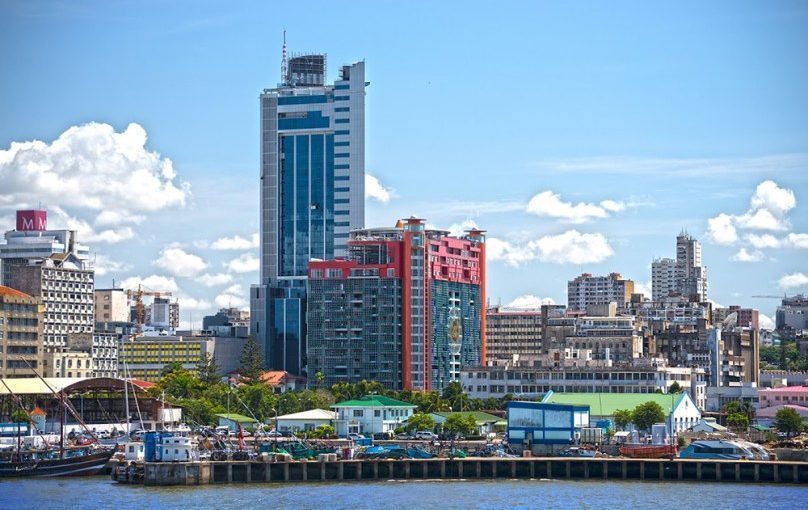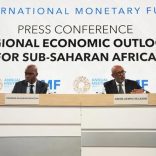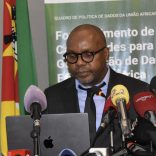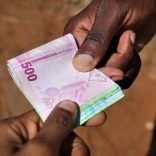Mozambique central bank cuts key rate to 9.75% – Watch
Mozambique: Aid cuts force borrowing – Hanlon

Maputo view. [File photo: My City]
- $140 mn aid cut forced more borrowing
Aid to government fell from $762 mn in 2018 to $622 mn in 2019 instead of increasing to $926 mn as planned. Aid and credits fell by $142 mn instead of increasing by $164 mn as hoped, according to the 2019 Budget Execution Report (Relatorio de Execucao Orcamental – REO – Jan-Dez de 2019)
Taking into account tax and other income, including $950 mn in capita gains tax from the sale of Anadarko to Total and of parts of ENI to Exxon, government still had to borrow $460 mn to cover the deficit. To fill the deficit of the 2018 budget, government only had to borrow $316 mn.
Of the 2019 borrowing, most ($305 mn) was a loan from the Bank of Mozambique and only $155 mn was from the sale of treasury bills and bonds.
Donor credits in 2019 included $212 mn from Japan, $145 from the World Bank, and $119 from the IMF.
Social and Economic spending took a major hit from the cut in add, falling slightly from $2.25 bn to $2.18 bn, rather than increasing as planned to $2.8 bn. The biggest cuts were roads (down 37% in 2019 compared to 2018, in both cases actual spending), higher education (down 18%), transport and communications (down 13%), agriculture and rural development (down 13%), and health (down 5%).
The reporting is by Aderito Caldeira (@Verdade, 18, 20, 25 Feb, 1 March), one of the very few journalists in Mozambique to actually look closely at accounts published by the government. The article, including the deficit table, is in Portuguese on http://bit.ly/2019Defice and in English HERE.
During president Nyusi’s term in office the government’s domestic debt had risen from $1.8 bn to $2.5 bn. In 2019, government paid $279 mn in interest on the domestic debt – paid to banks and bondholders. But government says it finally paid off nearly all of its debts to suppliers, paying $100 mn and leaving a debt of only $8 mn.
In addition, the government is carrying guarantees of debts to state companies (called Acordos de Retrocessao) of $1.9 bn of which almost nothing was repaid in 2019. The biggest state guaranteed debtors are Maputo Sul, for the building of the ring road and Katembe bridge ($630 mn), Electricidade de Mocambique (EDM, $474 mn) and Fipag (water, $275 mn). Government admits there is a high risk the debts will not be repaid by the state companies. The full article (in Portuguese with tables) is on: bit.ly/AcordosRetro
The state airline LAM is losing nearly $50 mn per year, and at the end of 2018 debts were $130 mn more than assets. The airline has been technically bankrupt since 2015. Currently $115 mn is overdue to suppliers, mainly for fuel and to the airports company of Mozambique, and $100 mn is owned to domestic and foreign banks. The state put $23 mn into LAM in late 2018. In October 2019 LAM announced plans to resume its flights to Lisbon, but on 26 February delayed the start again, this time to June.
- Turning to the IMF
Mozambique made a formal request to the IMF to begin new programme discussions. The IMF cut off support over the secret debt in 2016. Since then there have been informal talks, but the request for a resumption of budget support was made officially by Minister of Economy and Finance Adriano Maleiane to Deputy Director-General Tao Zhang in early February. A mission will be sent to Mozambique in late March.
But at a press briefing on 27 February, spokesperson Gerry Rice made clear the negotiations would not be easy. “Strengthening Mozambique’s governance framework is critical,” he said. He saw debt and “public debt sustainability” as a key issue, as well as the need for “a strong commitment to fiscal consolidation over the medium term” – that is, sorting out the secret debt and stopping borrowing to fund the budget.
The first step will be an agreement for a Policy Support Instrument (PSI), which would probably involve significant IMF intervention in Mozambican economic policy. According to the IMF, the PSI “delivers clear signals to donors, creditors, and the general public about the strength of the country’s economic policies.” Only with a PSI in operation will the IMF talk to Mozambique about money.
The IMF is still not happy about the secret debt, which is clearly in the front of minds of IMF staff. The new IMF Director General, Kristalina Georgiewa, in a recent interview said. “What we are telling everybody is 1: Transparency. Do not allow, like in Mozambique, to have a mountain of debt hidden.” Below, starting at 43 seconds of the interview, in English.)
- Comment: Donor backing for government
Despite an election widely condemned for fraud and misconduct, falling international scores for democracy, and the on-going fallout from the $2 bn secret debt, the international community has made clear it is backing Frelimo and the re-elected government of Filipe Nyusi. The World Bank poured in money during the election year 2019 – $700 mn compared to $530 mn in 2018 and $104 mn in 2017, when Mozambique was still being punished for the secret debt. World Bank commitments this year are already up to $400 mn.
In 2018 the World Bank launched a rural water and health post programme that became a central part of Nyusi’s 2019 campaign. China also threw its weight behind Nyusi, promising to build 35,000 houses in 2019. Two weeks ago the World Bank announced $75 mn for the new Secretary of State for Youth and Jobs to launch a programme to empower youth. (@Verdade 18 July 2019, 18 Feb 2020)
Donors queued to praise the new government and offer support. The United States, Britain, France, Portugal and Italy all issued early statements promising to support the government. The Mozambican presidency quoted various statements. Italian Prime Minister Giuseppe Conte praised the work of the Mozambican head of state in his first term. “I am sure that under your leadership, Mozambique will continue its path towards consolidating political stability and the reconciliation dialogue for the well-being and prosperity of the Mozambican people.”
“I want to assure the President of my commitment to deepen and continuously strengthen the relationship between the United Kingdom and the Republic of Mozambique,” the British Minister for Africa, Andrew Stephenson, was quoted as saying. He looks forward “to collaborating on the security and development of Mozambique” and attracting investments.
France and the US also promised support for the civil war in Cabo Delgado, but carefully have not said how. But there is a four-way struggle for dominance in the Mozambique Channel and around the gas fields between the United States, France, Russia and India.
There has been a total change. A decade ago the re-elected president Armando Guebuza was welcomed with donors withholding aid for three months to force Mozambique to make specific changes in the electoral law. Never again. This time, the re-elected President received an unqualified welcome.
Two things changed. First, in response to the revelation of the secret debt, in 2016 key donors cut off budget support and aid directly to government. But that back-fired. Frelimo survived, at a high cost, without budget support. Direct aid to government will never return, and donors have lost their biggest weapon – they have no power. Second, all the “partners” want part of the action in the multibillion dollar gas boom for their companies. As the UK’s Stephenson stressed, it is now about investment.
Mozambique’s democracy scores may plummet (see below) and the election may be fiercely criticised by EU and other observers. But now the foreign partners hold their nose and smile at the government, hoping for more contracts and investments, and in some cases for a military presence. The days of donor power are really over.
By Joseph Hanlon












Leave a Reply
Be the First to Comment!
You must be logged in to post a comment.
You must be logged in to post a comment.